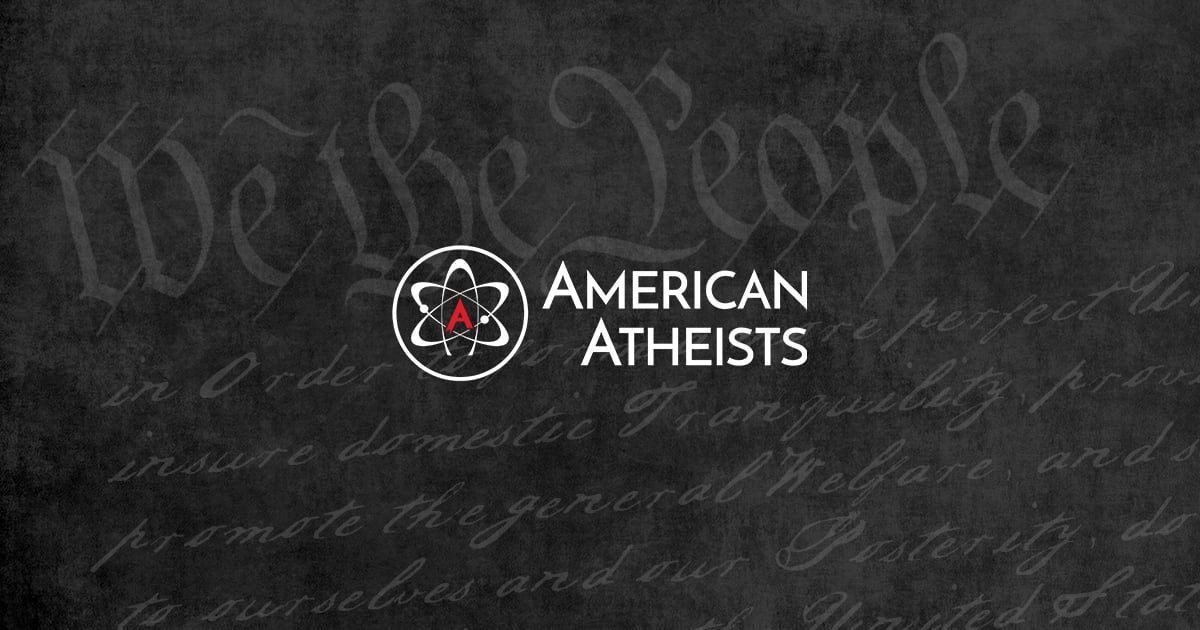I don't agree with this, and it doesn't comport with traditional standards of the uses of the English language.All of that is a workaround to the FACT that Atheism is a religious belief
You are using an out of date browser. It may not display this or other websites correctly.
You should upgrade or use an alternative browser.
You should upgrade or use an alternative browser.
Grok, is atheism a religion?
- Thread starter AProudLefty
- Start date
In Eastern religions, there is no sharp distinction drawn between philosophy and religion, like there is in the WestIt's more of a philosophy.
To me it sounds agnostic to say there is no evidence. He is not stating a belief one way or the other.Not necessarily. As Mr. Owl has said when the topics of faith, souls, afterlife, etc. come up "There's no evidence for that." Other than that, he gives the subject no thought because it's not on his radar. He knows my spiritual beliefs and is content to live and let live, and has never told me I'm wrong or "nuts" or anything derogatory. Every other atheist I know -- including several family members -- are the same.
I don't have evidence for life on other planets, and don't know whether we will ever find any. In my mind, that makes me agnostic on the belief in life on other planets.
Does he believe nothing is real but matter and energy?
It seems to be common practice that the word faith is used as a synonym for religion.No since the structure of the bridge is backed by physics and natural law. I'm not an engineer, but have faith that engineers know what they are doing just like airline passengers have faith the pilots know what they are doing.
The fact is, faith pervades our human lives. In marriage, in friendship, in science, in business, in daily life.
Dutch Uncle
* Tertia Optio * Defend the Constitution
Only among the poorly educated and/or the dimwitted.It seems to be common practice that the word faith is used as a synonym for religion.
The fact is, faith pervades our human lives. In marriage, in friendship, in science, in business, in daily life.
Agreed.
Atheism is not a belief. It is not organized. It is personal. It is simply the lack of belief in god. A religious belief in lack of a deity? That is illogical and stupid.A religious belief in lack of a deity. An atheist is the obverse of a theist.
Simple lack of belief in a deity is secularism, not atheism.
T. A. Gardner
Serial Thread Killer
I told you science and scientific theory. Religion does not mean a belief in God, but rather a set of dogma / rules that are followed in expectation of something in return, like going to heaven, reincarnation, etc. In Atheism the expectation is an understanding of the universe through science and a firm belief that science and rational thought provides all the answers.Again, what do they worship? Religion means belief in God and worship.
T. A. Gardner
Serial Thread Killer
Religion does not have to be highly organized. For many religion is personal. It isn't a "lack of belief in god" but rather a belief there is no god or gods. There's a difference. A secular person has a lack of belief in god. They don't know, and they don't care. The Atheist on the other hand does care. For the Atheist, there can be no god or gods. They believe god does not exist in the exact same way at Theist believes god or something greater than themselves does exist.Atheism is not a belief. It is not organized. It is personal. It is simply the lack of belief in god. A religious belief in lack of a deity? That is illogical and stupid.
And, yes, of the four states with regard to religion, theist, agnostic, secularist, and atheist, only atheism is illogical and stupid.
Yes, but that is a belief system, in the same way physical materialism, nationalism, or Marxism is a belief system.In Atheism the expectation is an understanding of the universe through science and a firm belief that science and rational thought provides all the answers.
It's not a religion in the traditional use of English words.
T. A. Gardner
Serial Thread Killer
It is still a religion.Yes, but that is a belief system, in the same way physical materialism, nationalism, or Marxism is a belief system.
It's not a religion in the traditional use of English words.
The definition of atheism does not include expectation and science. Again, it simply means lack of belief in a deity.I told you science and scientific theory. Religion does not mean a belief in God, but rather a set of dogma / rules that are followed in expectation of something in return, like going to heaven, reincarnation, etc. In Atheism the expectation is an understanding of the universe through science and a firm belief that science and rational thought provides all the answers.
T. A. Gardner
Serial Thread Killer
Yes, it does. It requires a belief that there is nothing greater in the universe than what is observable through scientific research, science in general, etc. To be Atheist, you have to have a firm belief there is no god. If you question the existence of a god, then you are agnostic. If you don't care if there's a god, then you are secular.The definition of atheism does not include expectation and science. Again, it simply means lack of belief in a deity.
A lack of belief does not equal being Atheist. Secularists lack a belief in a deity but the difference is they could care less if there is one or not. An Atheist cares. The Atheist believes there is no deity, god, or something greater in the universe.
In this case, Atheists went so far as to create a parody to fulfill their dogmatic beliefs in the lack of something greater in the universe.

Home - Church of the Flying Spaghetti Monster
The Church of the Flying Spaghetti Monster, after having existed in secrecy for hundreds of years, came into the mainstream just a few years ago. With millions, if not thousands, of devout worshipers, the Church of the FSM is widely considered a legitimate religion, even by its opponents –...
 www.spaghettimonster.org
www.spaghettimonster.org
Atheism is one thing: A lack of belief in gods.
Atheism is not an affirmative belief that there is no god nor does it answer any other question about what a person believes. It is simply a rejection of the assertion that there are gods. Atheism is too often defined incorrectly as a belief system. To be clear: Atheism is not a disbelief in gods or a denial of gods; it is a lack of belief in gods.
What is Atheism?
Atheism is one thing: A lack of belief in gods. It is not an affirmative belief that there is no god nor does it answer any other question about a person.
 www.atheists.org
www.atheists.org
I don't think so.It is still a religion.
All religions have a universal moral framework, specify a certain way of living a purposeful human life, and articulate a metaphysical view of spiritual liberation.
Atheism has no universal moral framework or established tenets for living a purposeful and meaningful life. There is simply no agreed-upon canonical texts or treatises for atheism.
It's just a belief system that requires a certain amount of faith, like virtually all beliefs do.
That sounds like agnosticism.Again, it simply means lack of belief in a deity.
An agnostic doesn't believe in the god of Abraham or the god of the Hindus.
But they aren't 100 percent certain a universal spirit, an afterlife, a transcendent higher truth is impossible. They haven't completely settled on an answer either way.
Buddhism does not directly speak about a creator God. But traditional Buddhist traditions accept the reality of deities and spirits. The canonical Dhammapada is peppered with references to deities and spirits, and nowhere does it deny they exist.Wait... Then what are:
Buddhism
Taoism
Unitarian Universalism
Jainism
Satanism
Variants of Wiccan
As but a few examples of non-theistic religions.
I think that is incorrect, PL.Atheism is one thing: A lack of belief in gods.
Atheism is not an affirmative belief that there is no god nor does it answer any other question about what a person believes. It is simply a rejection of the assertion that there are gods. Atheism is too often defined incorrectly as a belief system. To be clear: Atheism is not a disbelief in gods or a denial of gods; it is a lack of belief in gods.

What is Atheism?
Atheism is one thing: A lack of belief in gods. It is not an affirmative belief that there is no god nor does it answer any other question about a person.www.atheists.org
Anyone who describes him/herself as a "atheist" does so NOT because of a lack of belief in any gods, but because of one of two "beliefs."
Either the person "believes" there are no gods...or the person "believes" it is more likely that there are no gods than that there is at least one god.
Otherwise, the person would choose the descriptor "agnostic."
There is a false etymology for the word "atheist" that makes a pretense of requiring people who lack a belief in any gods to be considered atheists. That means that all babies and toddlers and mentally incompetent people are atheists.
No way!
Yes, we call it the Democratic Party of Lying Jackasses.No, atheism is not a religion. It’s the absence of belief in gods, lacking the organized structure, rituals, or dogma typical of religions. Some argue it can function like a religion when it becomes dogmatic or community-driven, but that’s a stretch—atheism itself is just a stance on one question, not a belief system.

Brainless dumbass let's Grok think for him.

FIFYOnly among the poorly educated and/or the dimwitted like me.
Agreed.

Is there a point here? Pointless wonder dunce.The definition of atheism does not include expectation and science. Again, it simply means lack of belief in a deity.

